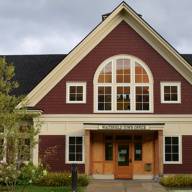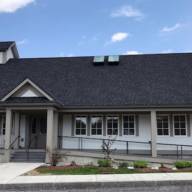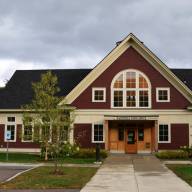The impact of The Valley’s lack of housing is readily apparent for employers whose potential workers can’t find a place to live and for those who already live here and must find a new place to live because their lease is up or their home has been sold.
But what about the real estate agents who make their living selling homes? How is it to work with clients and not be able to get them into their dream home? At the outset of the COVID-19 pandemic, people fled metropolitan areas, seeking refuge from crowds in Vermont and in the Mad River Valley where the volume of home sales sky rocketed in 2020. That trend continued throughout 2021 with fewer and fewer properties for sale and those that were for sale were at higher prices.
“We’ve experienced for the past year or so record low inventory. When something comes on the market, it gets purchased within days, pricing local buyers out of the market. It’s affecting local businesses. Restaurants don’t have the staff to stay open. With the cost of fuel, it’s hard to commute to The Valley. It’s more and more challenging for people who work in The Valley to live here,” said Erik Reisner at Mad River Valley Real Estate in Waitsfield.
For Kendall McCausland, who works for KW Vermont, the job has been frustrating and saddening.
“It’s been frenetic. When you have a buyer who’s able and willing to move quickly you can make the deal happen pretty seamslessly if you can get past the issue of multiple showings and multiple offers. Now our invengtory is so low that we still have multiple, but it’s not frenetic energy that we had. I believe that the rise in interest rates is impacting people who need to qualify for mortages. People who qualified for $450,000 are now back to qualifying for $350,000,” McCausland said.
“I work with quite a few buyers who really have not been able to get anything that they want and others who are just settlling. My saddest moments working as realtor right now are [the] fact that I can't seem to help local people buy anything. That saddens me and makes me disheartened. I’ve spoken to other realtors and it has the same impact on them,” she added.
At Sugarbush Real Estate, Waitsfield, Karl Klein said there are houses to be sold and that he has been selling them.
“Homes are coming on the market and selling rapidly, most of them. We are seeing a bit more inventory recently. The challenge is pricing. A lot of sellers are pricing as if we’re still in a super-heated market and I think it’s cooling a bit.,” Klein said.,
“I have buyers who are frustrated at the lack of options at their price point. There’s very little coming on the market under $700,000. Right now the MLS shows only seven homes on the market in The Valley, ranging in price from $1.4 million to $330,000 and only two of those are undere $600,000 in price,” he added.
Reisner said, whereas prior to the pandemic it was typical for there to be between 30-50 houses on the market in The Valley, he currently has one piece of land for sale at $350,000 for 10 acres. “That’s it,” he said. In the four Valley towns, there are seven single-family homes for sale. He says as soon as a property gets listed realtors have to reach out to potential buyers right away. “You have to act quickly,” he said. He said almost every sale involves multiple offers and buyers typically have one chance to make an offer. He said he’s had to have his “finger on the pulse of the market.”
“Interest rates are on the rise, that will affect some buyers,” he said. He has sometimes had to change his commission rate as a result of the market, though says he is still able to offer a discount to repeat clients. “I’ve somehow stayed very busy,” he said.
McCausland echoed Reisner’s concerns about interest rates.
“The mortgage rates are a real thing. It’s going to impact all of us. Higher rates mean people can’t afford as much, which further impacts local people seeking homes here. And the rental market here is just very, very tough. Local people can’t find housing. I’ve had a couple of sales in the last two years that have been helping local people find homes and those have been some of my most rewarding sales. Most of my sales are to out-of-state people and most of them are cash,” McCausland said.
Klein said he thinks the real estate market will stabilize.
“I don’t think it’s a bubble. Look at Stowe, our competition. We’re still a value compared to Stowe and what Stowe offers is not what everyone wants. I find that my clients who look at both areas opted for The Valley because they like the lifestyle here,” Klein said.
Reisner sees continued pressure on the local housing market and the Northeast in particular. He cited a mass migration to rural America and particularly the Northeast as part of the housing problem in the region, including climate refugees from the south and west avoiding severe heat and wildfires in favor of the Northeastern region. He said there’s been a “huge influx of people throughout the state. The Mad River Valley has a lot to offer,” so it’s “even more attractive.”
“I don’t see it changing in the foreseeable future,” Reisner said.












